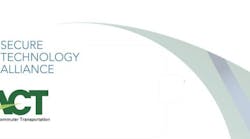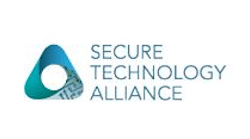Secure Technology Alliance Partners With Association for Commuter Transportation
Multimodal payments convergence – the integration of payment services for any type of transportation — is rapidly gaining popularity in the U.S. and abroad due to its ability to make paying for travel more convenient. The Secure Technology Alliance, formerly the Smart Card Alliance, explores real-world implementations of payments convergence to provide a foundation for transit agencies considering supporting these new models in a new white paper.
The white paper, “Multimodal Payments Convergence — Part One: Emerging Models and Use Cases,” was developed in a collaboration between the Secure Technology Alliance’s Transportation Council and the Association for Commuter Transportation (ACT).
“Mobile and smart card technologies have created many opportunities to make it easier and more convenient for travelers to pay for any type of transportation service through using the same payment method or linked payment accounts,” said Randy Vanderhoof, executive director of the Secure Technology Alliance. “This white paper brings these opportunities to the forefront by showcasing real-world implementations, laying a strong foundation for transit agencies looking to provide a smoother experience for their customers with multimodal payments.”
The first in a two-part series, this white paper provides:
- An outline of four types of payment convergence that have been implemented: the use of a common payment technology, linked or integrated mobile apps, common or linked payment accounts, and incentives or co-marketing
- Real-world use cases illustrating innovation in multimodal payments, including Chicago Transit Authority (CTA), Dallas Area Rapid Transit (DART), Transport for London (TfL), Los Angeles County Metropolitan Transportation Authority (LA Metro), Washington Metropolitan Area Transit Authority (WMATA), and others
“Advancements in payment technologies will improve the user experience and reduce barriers between transportation systems,” said David Straus, executive director of the Association for Commuter Transportation. “This will expand the number of options available to commuters and encourage more people to leave their single occupancy vehicles at home.”
As a next step, the Transportation Council and ACT are developing a second white paper, “Multimodal Payments Convergence — Part Two: Challenges and Opportunities for Implementation,” to describe alternative visions for payment systems, identify many of the potential barriers to implementation of multimodal payment strategies, and suggest ways of addressing these challenges.
Secure Technology Alliance Transportation Council participants involved in the development and review of this white paper included: American Express; CH2M; Dallas Area Rapid Transit (DART); Gemalto; Giesecke & Devrient; InComm; INIT Innovations in Transportation; LTK Engineering Services; NXP Semiconductors; Mastercard; Metropolitan Transportation Commission (MTC); Oberthur Technologies; Southeastern Pennsylvania Transportation Authority (SEPTA); Thales Group; U.S. Department of Transportation (DOT)/Volpe Center; Vantiv; Waltz Inc.
The 10th Annual Payments Summit, a Secure Technology Alliance event, will take place March 27-30 in Orlando, Florida at the Renaissance Orlando at SeaWorld and will include presentations on transit payments and other key payments security topics.
The full white paper can be viewed at http://www.masstransitmag.com/12319026



